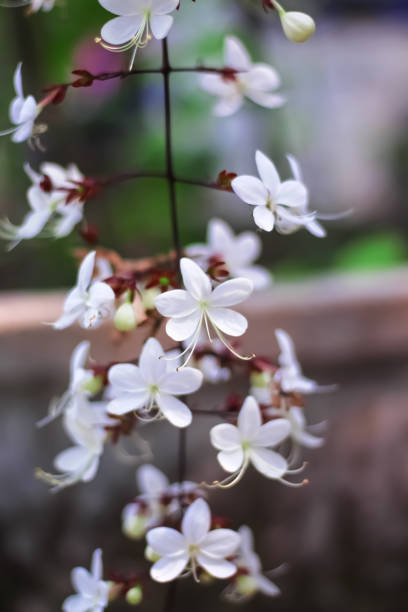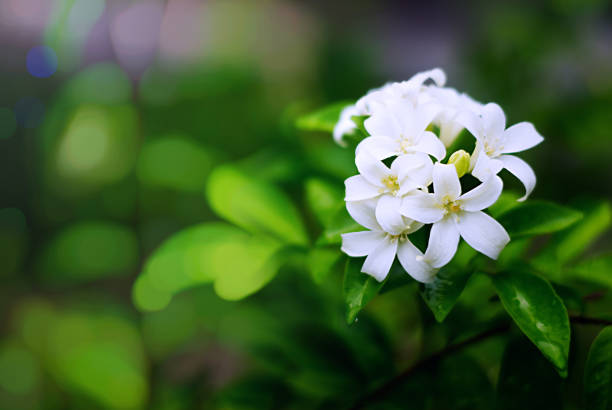Do Jasmine Attract Bees?
Does Jasmine attract bees? Jasmine is a flowering plant of the genus Jasminum, and the commercially important species is J. officinale. You can eat all parts of Jasmine, with flowers being the most widely used. They are a favorite of bees and can be made into honey. Jasmine flowers are picked at night to avoid bee foraging. The rest of the plant contains alkaloids that poison many animals and insects.
Table of Contents
Do Bees Like Jasmine?
Yes, Jasmine is a delicate and dainty flower with small flowers well-known worldwide for its distinctive tropical scent and beautiful blossoms attracting bees. They also attract hummingbirds. Jasmine’s flowers bloom all year long, with most species white, though some are yellow or cream. A pot or hanging basket can be used to grow Jasmine. It would be best if you were careful when you do this. Many methods are possible, including direct planting in the ground and training it to climb or grow as bushes or ground cover.

Does Night Blooming Jasmine Appeal to Bees?
Even though plants that bloom during the daytime may attract pollinators, such as bees. You may not want these insects too close to your home for fear of being stung accidentally. As a solution, the night-blooming Jasmine (Cestrum nocturnum) fills your garden with intoxicating scents while attracting fewer bees than other types of Jasmine. On warm nights, this nightshade family shrub, which grows in USDA plant hardiness zones 8 through 11, attracts other pollinators, such as moths, to its blossoms.
Although night-blooming Jasmine has relatively small flowers, it is well-known for its strong fragrance. Each flower is formed by a small, white tube that stands out brightly against the deep green foliage of the plant. Even though it prefers full sun, the blossoms do not open until the evening. Bees are typically only active during daylight hours, making them less common as pollinators for the night-blooming Jasmine. Because it blooms at night, this plant relies on scent to attract pollinators rather than a visual display.
Moths are the most common pollinators of night-blooming Jasmine. In the moonlight, the white flowers act as reflectors, attracting moths to the plant’s scent and descending on the blossoms. They are hovering insects that have developed a proboscis, or tongue, to reach nectar from tubular flowers. As moths fly between flowers, pollen grains adhered to their bodies help pollinate the blossoms. Most moth species come out to play in the evenings and at dusk.
Even though night-blooming Jasmine is a primary food source for most bee species, they do not consume it because they rest after the sun sets, and their vision would be impaired in the dark.
When the bee population is reduced at dusk, some species of bees, known as crepuscular or matinal types, take advantage of the situation. These bees have improved their night vision, allowing them to detect specific environmental markers in dimly lit environments. Because of the scent of the night-blooming Jasmine, nocturnal bees may come to your plant in search of nectar. Nigh-time bees benefit because fewer bees are out at dusk and dawn, allowing them to avoid competition and collect more nectar.

Bee Activity Habits
Most flowers bloom during the day, so most bees rely on color recognition to locate nectar sources. Bees increase their chances of surviving by visiting a variety of flower types and consuming various food sources.
What are the Benefits of Jasmine for Bees?
Jasmine is a fragrant flower that has been used for centuries to help improve the health of bees.
There are many benefits of Jasmine for bees, such as:
• It helps keep bees healthy and free from pests.
• It helps increase honey production.
• It helps improve bee navigation and flight.
• It has a calming effect on bees, making them less aggressive and more productive.
How Can I Help Support Bees?
There are multiple ways that you can help support bees. You can plant flowers that bees will need to pollinate, buy products made with honey or beeswax, or make donations to organizations that work to protect bees.
One way you can help support bees is by planting flowers that they will need to pollinate. Flowers like dandelions and clover are important sources of pollen for bees. By planting them in your garden, you will help ensure a healthy bee population.
You can also buy products that are made with honey or beeswax. Honey is a naturally occurring sweetener obtained from beehives, the comb, or cells of honeybees. It is used in baking, cooking, ice cream making, cosmetics, medicines, and varnishes. Beeswax is the wax produced by honeybees used in candles, soaps, balms, and other products. Buying these products helps support beekeeping and helps ensure a healthy supply of honey and beeswax for future generations.
